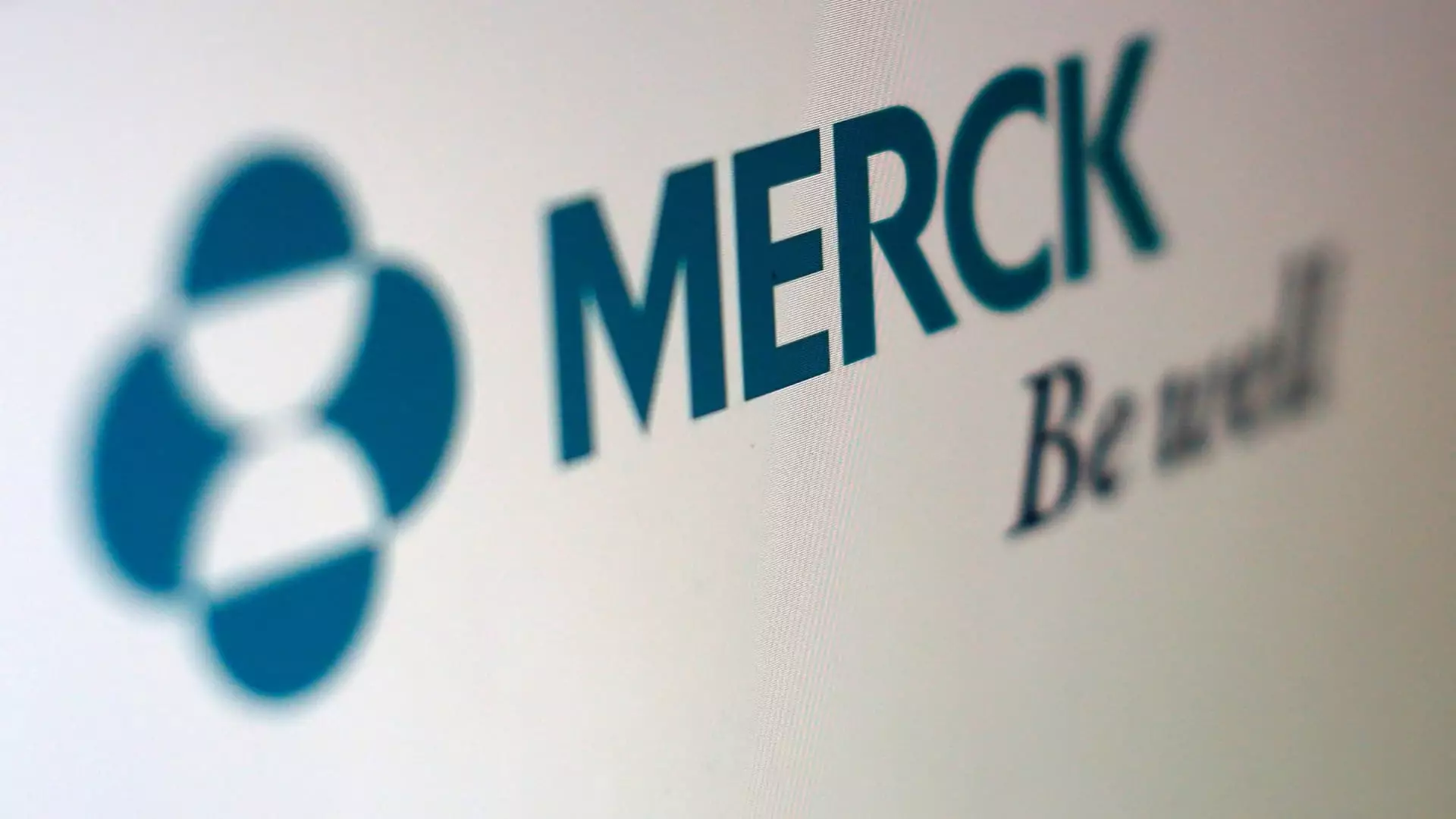The recent approval granted to Merck for its new respiratory syncytial virus (RSV) shot, Enflonsia, has generated considerable excitement in the medical community. Marking a pivotal moment in the fight against a virus responsible for alarming hospitalization rates among infants, this breakthrough is a welcome addition to our arsenal. Enflonsia promises to provide vital protection during the infant’s susceptible first season, filling a gap left by existing treatments. As families bear the emotional and financial strain of RSV, the advent of this new option is seen as a potential relief. However, while this innovation presents an opportunity for progress, we must also remain cautious and critical, given the underlying complexities of medical marketing and supply dynamics.
The Battle of the Antibodies
With Enflonsia entering a competitive landscape populated by Sanofi and AstraZeneca’s Beyfortus, the dynamics of this market are worth dissecting. Both treatments represent distinct approaches to the same problem, yet they remain fundamentally different in their clinical actions. Merck’s Enflonsia can be administered to infants regardless of weight, a novel approach contrasting with Beyfortus, which requires dosage calculations based on an infant’s body mass. While both products are expected to deliver monoclonal antibodies into the bloodstream, the subtle distinctions in their mechanisms of action make it difficult to ascertain which will prove most effective in real-world scenarios.
This burgeoning rivalry leads us to ponder a crucial question: are we prioritizing the convenience and efficacy of these treatments, or are we merely driven by market competition? The pharmaceutical industry’s reputation for prioritizing profits often clouds our perception of genuine innovation intended to serve public health interests. The overwhelming demand that led to shortages of Beyfortus last season invites skepticism; is the availability of these treatments merely a byproduct of smart marketing rather than an expression of environmental and social responsibility?
The Dilemma of Healthcare Access
Merck’s commitment to ensuring the uptake of Enflonsia before RSV season is commendable, but it raises unsettling questions regarding healthcare equity. Will families across socio-economic divides have equal access to this life-saving shot, especially considering that RSV disproportionately affects vulnerable populations? The U.S. healthcare system is riven with inequalities that often impede access to essential medications. As Merck prepares its rollout, the reality of health disparities looms large.
The healthcare system’s existing shortcomings underscore the need for a multi-faceted approach to tackle RSV and other childhood diseases. While monoclonal antibodies like Enflonsia and Beyfortus provide immediate protection, they cannot substitute for broader public health initiatives that ensure year-round access to healthcare services. We should reflect on whether the introduction of new treatments is a band-aid solution when we need structural reforms—affordability, comprehensive care, and robust immunization programs must also be on the agenda.
The Shadow of Safety Concerns
The FDA’s recent decision comes amidst ongoing evaluations of RSV vaccines’ safety for young children. Although Enflonsia has shown promising results in mid to late-stage trials, we must remain vigilant about the implications of rushing to market in the face of urgency. While the data indicates considerable reductions in RSV-related hospitalizations, the safety concerns surrounding vaccines should not be glossed over. Public hesitancy is a real risk that could undermine the potential success of Merck’s new shot and any competing products.
The events currently unfolding signal a curiosity-driven race toward immunizing the next generation against RSV, but the emphasis must be balanced with rigorous scrutiny of potential side effects. Pharmaceutical companies must prioritize transparent communication around safety concerns if they hope to foster trust among parents already apprehensive about vaccinations.
Final Thoughts on a Complex Situation
As we welcome Merck’s new RSV treatment into the healthcare landscape, we should embrace the innovation while staying alert to the myriad challenges it presents. The approval of Enflonsia invites both celebration for scientific advancement and a healthy skepticism regarding pharmaceutical motives and healthcare accessibility. In a world where public health should supersede profits, we must ensure that all children have equal access to this vital lifeline of protection against RSV, not just those fortunate enough to navigate our complex healthcare maze. The future is promising, but lingering apprehensions must be addressed to harness the full potential of this medical innovation.

